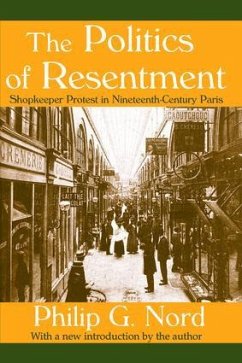The establishment of the Third Republic in France in the 1870s swept the nobility from power and established republican government supported by the professional classes, the peasantry, and small businessmen. Paris shopkeepers at first allied themselves with this new republican order but then broke away from it, claiming it favored the rise of large department stores that threatened their livelihood. This work offers a broader interpretation of their protests within the context of general social and cultural developments, providing a colorful and convincing description and analysis of Parisian politics in this critical era of French history.Historians' previous explanations of shopkeeper discontent during the period have centered on the rise of the department store. In contrast, Nord shifts the locus of interpretation to the impact of Baron Haussmann's rebuilding of Paris and the economic crisis of the 1880s on the Paris retail market. In addition, the author challenges the assumption that retailers' protest translates directly into a politics of reaction. His interpretation is an example of social history at its best, and will appeal to those interested in France, social movements, and nineteenth-century Europe.Available for the first time in paperback, this edition includes a new introduction by the author that discusses the book's themes--politics of consumption, nationalism, anti-Semitism--in terms of current historiographical concerns. He also examines whether our own era is not one of political realignment with a potential for right-wing extremism.
Hinweis: Dieser Artikel kann nur an eine deutsche Lieferadresse ausgeliefert werden.
Hinweis: Dieser Artikel kann nur an eine deutsche Lieferadresse ausgeliefert werden.








